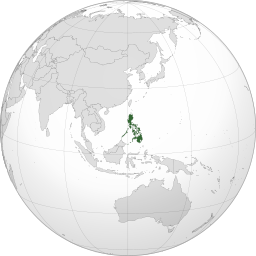
President Duterte came to power in June 2016 as a populist, with a long history of outrageous statements and extreme positions. Regarding drug users and traffickers, Duterte said that he would “slaughter them all.” Immediately after his inauguration thousands of people were killed by death squads, or were shot by police upon the mere suspicion of doing drugs. The President’s policy was initially popular, but over the last few months people have tired of the unending violence.
In the United States, one could argue that the War on Drugs really dates to 1973, when President Richard Nixon established the Drug Enforcement Agency. This approach conceived as drugs as a security threat to be dealt by strengthening the border, increasing the number of police, and using the U.S. armed forces and allied militaries to target drug traffickers. In 1999, the United States adopted Plan Colombia to fight both the drug cartels and guerrillas in Colombia. The U.S. gave over eight billion dollars to Colombia to expand its armed forces, purchase military equipment, carry out aerial spraying, and fight the cartels. Despite this substantial investment, the supply and price of cocaine in the United States did not decline, even after the death of Pablo Escobar, the leader of the Medellin cartel. The center of drug trafficking, however, did shift to Mexico.
In Mexico, President Felipe Calderón announced the start of the drug war in December 2006. In the years that followed well over 100,000 people have died in the fighting. The U.S. has strongly supported Mexico’s position in this conflict, by providing funding, training, equipment and intelligence. This effort has been known as the Mérida Initiative. At this time, there are no signs that the Mexican drug war is ending, or that drugs are less accessible or affordable in the United States than they were before the start of this conflict. In this sense, the Philippines is following the Mexican approach to the drug war, despite the extreme violence that policy has brought to Mexico, with any clear decline in the drug trade through that country.
This extreme crackdown on drug usage in the Philippines is an outlier internationally. Globally, there is a movement towards harm reduction, which views drug use as a public health rather than a security issue. In this approach, most drug use is decriminalized, there is increased outreach to drug users, and more resources are put into treatment. The countries often associated with this approach are Portugal and Switzerland. In the case of Portugal, all the data suggests that drug usage has declined since the country adopted this policy in 2001. This evidence may have influenced the World Health Organization, which has called for the decriminalization of drugs. In general, in Europe there is a movement towards harm reduction, whereas in Asia nations are more likely to adopt stiff penalties for drug usage. A number of Latin American countries are also considering legalizing drugs or their precursors, such as coca. This has created a great deal of political tension between countries such as Bolivia -which has legalized coca- and the United States.
What puzzles me is why there has not been more attention on U.S. campuses regarding the Philippines’ drug war. There are a number of major global issues right now -such as North Korea’s nuclear program, the war against Terror and the Syrian conflict- which are perceived to have a more immediate impact upon Americans. Perhaps too we Americans are too caught up in internal politics at the moment to focus on international issues in general. Devon Stoeber, a PSU student, has a recent article on this issue in our student newspaper, The Vanguard, titled Duterte’s drug war continues to rage in the Philippines. Do you want to read more blog posts about the drug war? You can find further reading here.
Shawn Smallman, 2017
